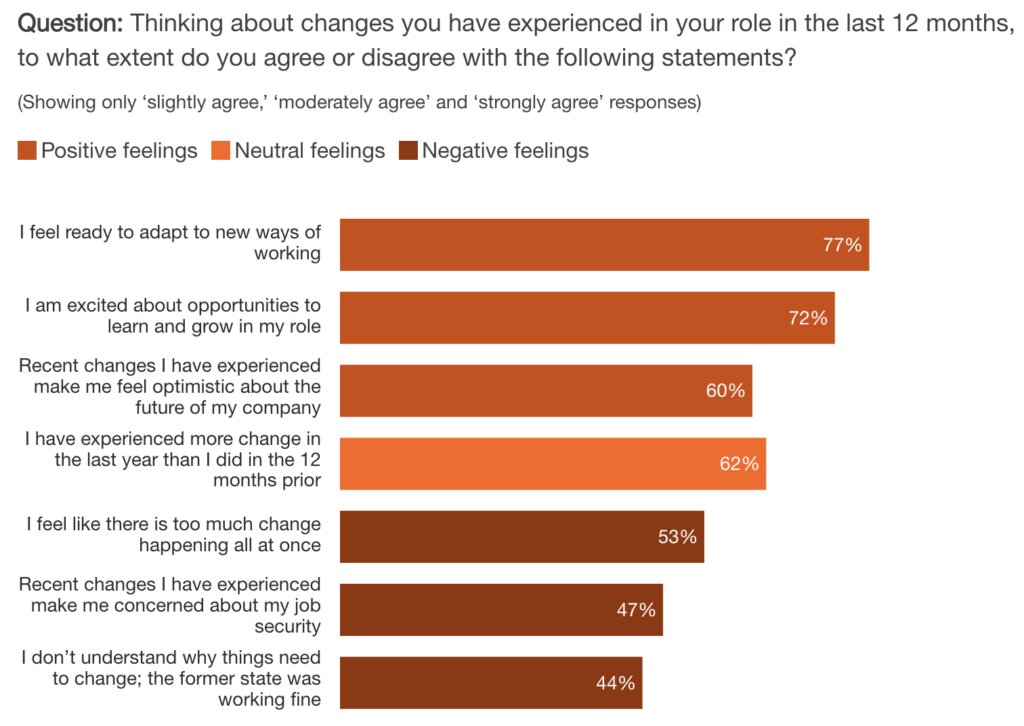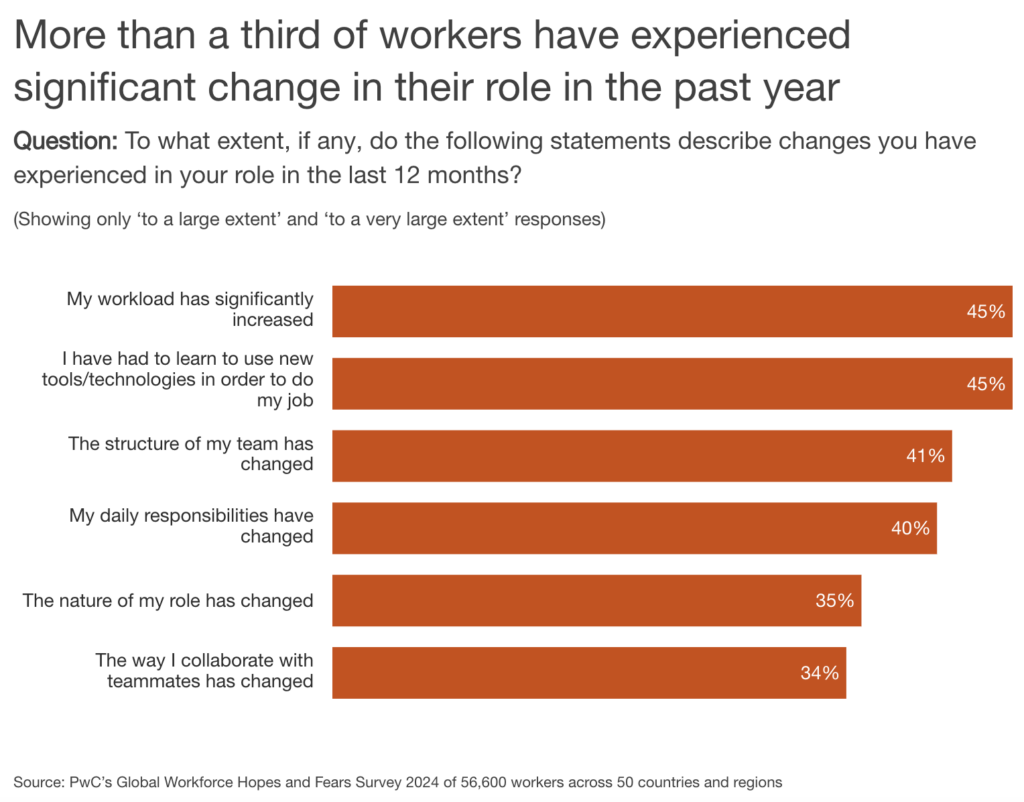The global workforce is currently experiencing a profound evolution in its work practices. This shift is underscored by a significant 28% of employees expecting to switch employers within the next 12 months, surpassing the 19% observed during the “Great Resignation” period of 2022. The latest “Global Workforce Hopes and Fears” survey by PwC sheds light on these developments, revealing both the challenges and opportunities faced by employees worldwide over the past year.
PwC’s comprehensive survey included over 56,000 workers across 50 countries and regions. The findings highlight a workforce caught between the demands of today and the uncertainties of tomorrow.
When asked about the changes in their roles over the past year, a striking 62% of respondents reported experiencing more changes in the last 12 months than in the previous year.
Even though 60% of surveyed workers expressed optimism about their company’s future, a significant 47% voiced concerns about job security due to recent changes at workplaces. This juxtaposition of optimism and anxiety suggests that the rapid pace of change might be impacting workers’ ability to perform at their best, leading to increased stress, fear of taking risks, and decreased morale.
Interestingly, while many employees express concern, a majority appear to be embracing the rapid changes at workplaces. Over 70% of respondents are ready to adapt to new ways of working and are eager for new learning and growth opportunities. This readiness indicates that, while positive changes are welcomed, the intensity and rate of transformation can still be stressful for many.

Let’s explore these changes at workplaces that employees perceive as either opportunities or challenges to adapt to.
The Nature of Changes at Workplace
The survey reveals several key areas where workplace changes are most pronounced. Nearly half of the respondents reported a significant increase in their workload over the past year. This is mainly due to the adoption of new technologies such as Artificial Intelligence (AI), Machine Learning (ML), etc., among other shifts in their roles and responsibilities.
Another 40% mentioned changes in team structures and daily job duties, while over one-third experienced alterations in collaborating with teammates.

Several key factors are driving these rapid changes in the workplace. Climate change, geopolitical disruptions, advancements in artificial intelligence (AI), evolving customer preferences, and new government regulations influence the rapid changes in the global workplace. These factors are expected to continue shaping the way businesses create, deliver, and capture value over the next three years.
The Adoption of GenAI at Workplaces
When asked about the impact of various factors on their jobs over the next three years, a notable 56% of CEOs and 46% of employees identified technological advancements, such as AI, generative AI, and robotics, as pivotal.
However, the widespread adoption of generative AI (GenAI) in workplaces has not yet fully materialized. Even though a whopping 61% of employees have reported using GenAI at least once in the past year, daily or weekly use remains limited at just 12% and 16%, respectively.
However, the potential impact of GenAI is significant. Forty per cent of respondents believe that GenAI will fundamentally change their profession within five years. Among those who use GenAI daily, 82% expect it to increase their efficiency in the next 12 months. Furthermore, nearly half of the surveyed employees anticipate that GenAI will lead to higher salaries, and two-thirds hope these tools will improve the quality of their work.
As the global workforce continues to adapt to unprecedented changes, balancing the pace of transformation with the need for stability becomes crucial. While many employees are ready to embrace new opportunities, the challenges of increased workload and change fatigue cannot be overlooked. Leaders must engage their workforce in their vision for the future and increase the usage of cutting-edge technologies such as AI and ML through comprehensive employee training.

